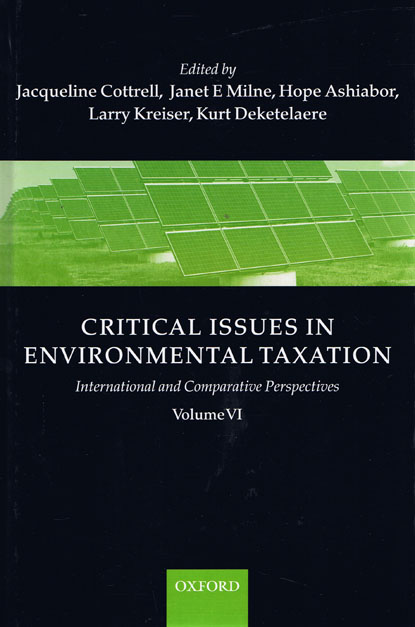
Volume 4 in the Critical Issues in Environmental Taxation series provides a peer-reviewed selection of papers on environmental taxation written by experts from around the world. Selected from papers delivered at the Annual Global Conference on Environmental Taxation, they cover the theory of environmental taxation, countries' experiences of specific environmental taxes, proposed environmental taxes, and evaluations of the role of taxation compared with other environmental instruments.
The book provides an interdisciplinary approach to environmental taxation, drawing on the fields of economics, law, political science, and accounting. Each volume in the series reflects the theme of the conference from which the papers are drawn, as well as other broader themes. Volume 4 will focus on the role of taxation in promoting renewable energy, but also includes a number of papers on other topics related to environmental taxation. Written predominantly by academics, the papers provide in-depth analysis that will provide a valuable resource to people interested in environmental taxation.